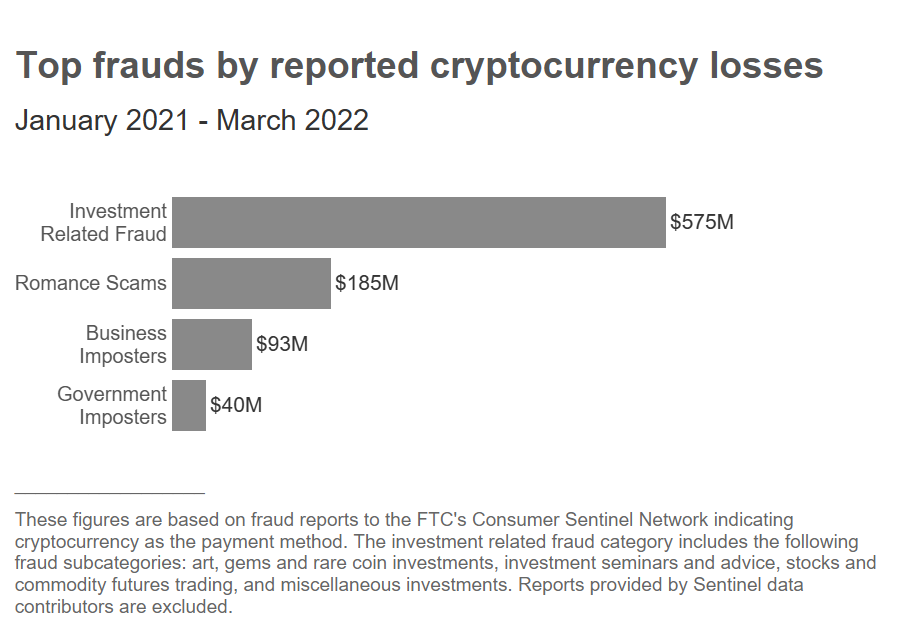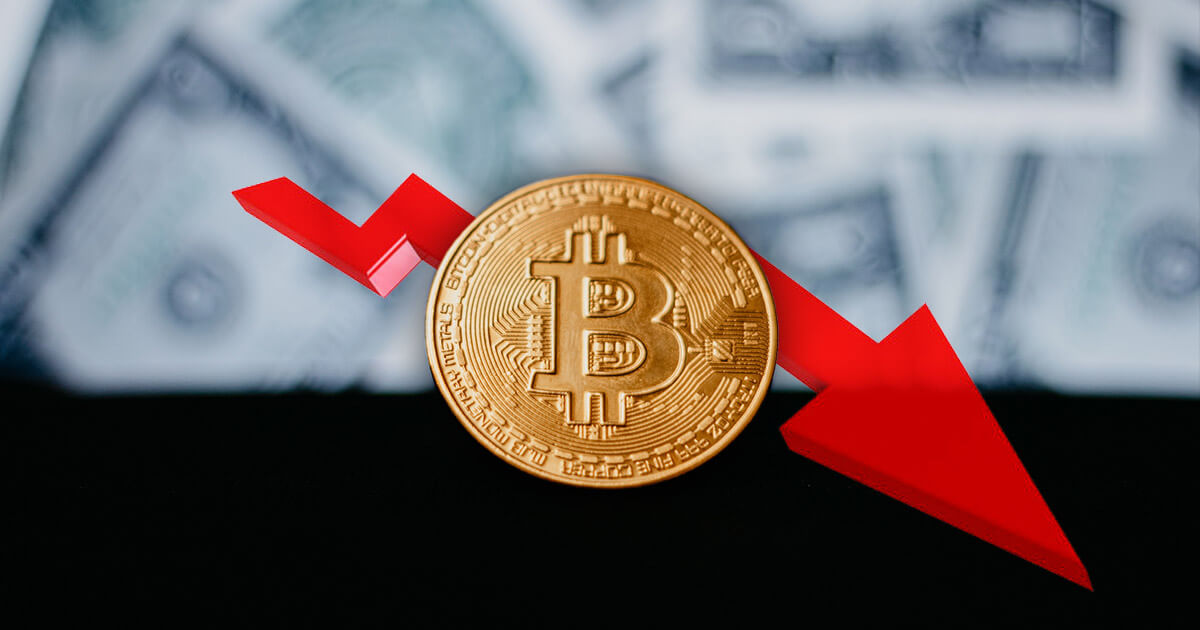The Federal Trade Commission (FTC) is laying out the scope and methods used by crypto fraudsters to rack up a billion dollars in illicit gains.
According to a new consumer protection report, the FTC says that since the beginning of last year, over 46,000 people had more than $1 billion stolen via cryptocurrency scams, with victims losing a median amount of $2,600.
The report provides a breakdown of which digital assets were used to pay the thieves, with Bitcoin (BTC) taking the vast majority at 70%, followed by stablecoin Tether (USDT) at 10% and leading altcoin Ethereum (ETH) at 9%.
The FTC goes on to say that scammers prefer to use digital assets for their schemes due to lack of banking oversight, inability to reverse a transaction, as well as the average consumer’s lack of knowledge about crypto and blockchain technology.
Regarding the types of scams and losses, the report says,
“Since 2021, $575 million of all crypto fraud losses reported to the FTC were about bogus investment opportunities, far more than any other fraud type…
Business and government impersonation scams are next with $133 million in reported crypto losses since 2021. These scams can start with a text about a supposedly unauthorized Amazon purchase, or an alarming online pop-up made to look like a security alert from Microsoft.”
The report also gives examples of how sophisticated some of the ruses are, with consumers seemingly able to track the growth of their investments or even make a nominal test withdrawal in order to gain trust.

Check Price Action
Don’t Miss a Beat – Subscribe to get crypto email alerts delivered directly to your inbox
Follow us on Twitter, Facebook and Telegram
Surf The Daily Hodl Mix

Disclaimer: Opinions expressed at The Daily Hodl are not investment advice. Investors should do their due diligence before making any high-risk investments in Bitcoin, cryptocurrency or digital assets. Please be advised that your transfers and trades are at your own risk, and any loses you may incur are your responsibility. The Daily Hodl does not recommend the buying or selling of any cryptocurrencies or digital assets, nor is The Daily Hodl an investment advisor. Please note that The Daily Hodl participates in affiliate marketing.
Featured Image: Shutterstock/SerGRAY/Natalia Siiatovskaia
Credit: Source link
















